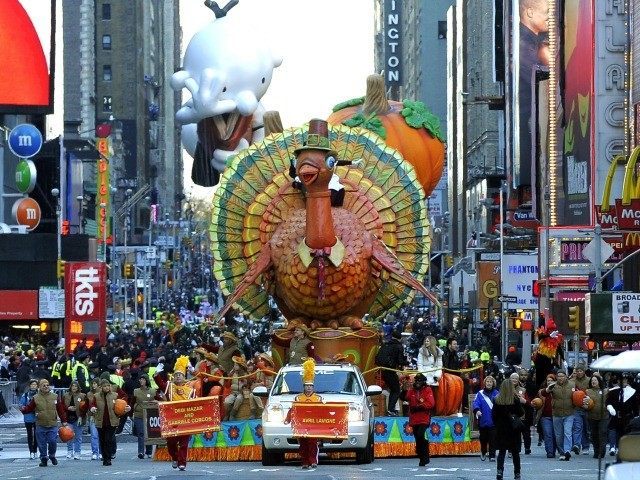Although often seen as a day to kick off the Christmas shopping season, Thanksgiving is perhaps the most deeply American holiday and its tradition is connected to the idea of “American exceptionalism.”
Ronald Reagan’s presidential farewell speech included a line about America as a “shining city,” channeling Puritan John Winthrop’s 1630 sermon about America as a “city upon a hill,” as well as the Bible. Both Reagan and Winthrop used the statement of America as a shining city as a statement of faith in America as a land of liberty and future prosperity.
The earliest settlers that would comprise the English colonies experienced almost unimaginable suffering on their voyage to the New World and great toil once they arrived.
One eighteenth-century traveler described his voyage as, “terrible misery, stench, fumes, horror, vomiting, many kinds of sea sickness, fever, dysentery, headache, heat, constipation, boils, scurvy, cancer, mouth-rot, and the like.”
However, there was a good reason that so many were willing to risk their lives in a dangerous ocean crossing. Captain John Smith, who had recently explored New England, said, “Of all the four parts of the world I have yet seen not uninhabited, I would rather live here than anywhere.”
The payoff of a new life in the New World, separate from the suffering and tyranny of the old, compelled many to risk everything to start over.
The passengers aboard the Mayflower, who are given credit for starting the tradition of Thanksgiving in America, faced misery and danger almost alien to modern Americans. After landing on the shores of the New World in 1620, the Pilgrims faced mass starvation and nearly half of the 102 that began the journey died before spring.
However, as difficult as life began in their new home, not a single Pilgrim settler chose to go back to England with the Mayflower crew. They were committed to their new home and wrote the “Mayflower Compact” that would set up rules for the new society and carve out the liberties due to every new citizen. The Pilgrims, like many immigrants to America after them, saw the potential for freedom and abundance in the New World, and whatever its flaws they knew that it was a land of almost unlimited opportunity. So when their unrelenting toil and suffering ceased, the profoundly religious Pilgrims set aside a day of thanksgiving to mark a triumph over the profound challenges they faced, to give thanks to God that they had survived and prospered, and to celebrate a brighter future.
Ever after, Americans have returned to the tradition of Thanksgiving, and its significance continued to grow following the founding of the United States, a nation formed on universal ideas of liberty as demonstrated in our founding documents: the Declaration of Independence and the Constitution.
Shortly after the creation of the United States government as outlined by the Constitution, President George Washington issued a proclamation in 1789, as requested by Congress, for a national day of “public thanksgiving and prayer” to acknowledge the “signal favors of Almighty God” that allowed American people to create a new government to provide for their “safety and happiness.”
Washington and other Americans of that time were keenly aware of the struggle required to create a land of liberty and to build a foundation for future prosperity. Future generations of Americans would understand this as well, and Thanksgiving’s long-standing tradition of acknowledging the trials and tribulations of the past while looking forward to a brighter future continued.
On the 200th anniversary of the Mayflower’s at Plymouth Rock, the great Massachusetts statesman and orator, Danie1 Webster, made one of his finest speeches celebrating and giving thanks for the small band of hopeful Pilgrims that paved the way for a new nation, based on truly exceptional principles.
Webster opened his speech with a statement that should resonate for all Americans no matter what the era:
We have come to this Rock, to record here our homage for our Pilgrim Fathers; our sympathy in their sufferings; our gratitude for their labors; our admiration of their virtues; our veneration for their piety; and our attachment to those principles of civil and religious liberty, which they encountered the dangers of the ocean, the storms of heaven, the violence of savages, disease, exile, and famine, to enjoy and to establish. And we would leave here, also, for the generations which are rising up rapidly to fill our places, some proof that we have endeavored to transmit the great inheritance unimpaired; that in our estimate of public principles and private virtue, in our veneration of religion and piety, in our devotion to civil and religious liberty, in our regard for whatever advances human knowledge or improves human happiness, we are not altogether unworthy of our origin.
In the midst of the American Civil War, the bloodiest conflict in American history and the trial in which our nation came closest to collapsing, President Abraham Lincoln set the modern Thanksgiving tradition so that the country would never forget where its blessings had come from:
I do therefore invite my fellow-citizens in every part of the United States, and also those who are in foreign lands, to set apart and observe the last Thursday of November next as a day of thanksgiving and praise to our beneficent Father who dwelleth in the heavens.
Americans today are privileged to live in a country based on timeless principles and aided by the sturdiest men and women who often made great sacrifices to ensure the blessings of liberty for both themselves and future generations. Americans have much to be thankful for, and as busy as life may be, as occupied with the multitude of distractions that come with unparalleled prosperity, Thanksgiving should provide at least a brief moment to acknowledge the true blessing of living in an exceptional country.
Editor’s Note: The above article was originally published November 28, 2013.

COMMENTS
Please let us know if you're having issues with commenting.